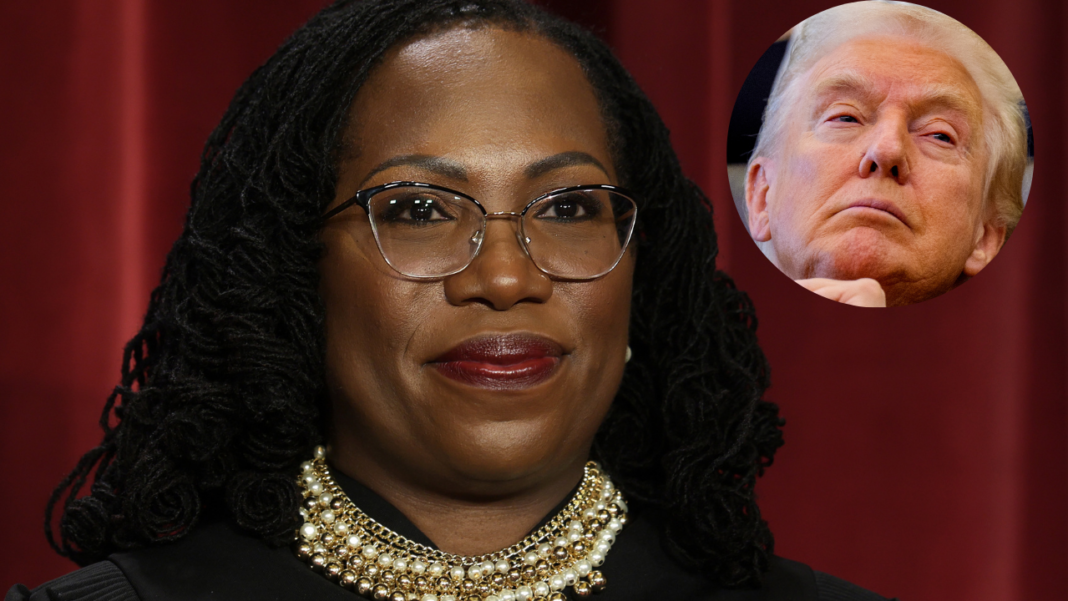Supreme Court Justice Ketanji Brown Jackson’s Ruling on SNAP Benefits: An Overview
On Friday, November 7, Supreme Court Justice Ketanji Brown Jackson issued a significant order regarding the Supplemental Nutritional Assistance Program (SNAP) benefits, affecting around 42 million Americans who rely on these payments. This ruling emerged amid a government shutdown that has intensified scrutiny over food assistance programs, highlighting the ripple effects of political maneuvers on everyday lives.
The Order and Its Immediate Impact
Justice Jackson’s order put a temporary halt to the full release of SNAP benefits, a move that sparked immediate backlash on social media. Critics voiced their concerns about how this decision jeopardizes food security for millions during a time of increased need. Although the move was procedural—effectively pausing some payments until the U.S. Court of Appeals for the First Circuit reconvenes—it drew significant attention because of the vital role SNAP plays in supporting vulnerable populations.
In her brief, Jackson underscored the necessity of this “administrative stay,” stating that it was needed to allow for an expedited resolution of the pending motions in the First Circuit. This stay will automatically terminate forty-eight hours after the First Circuit issues its decision, which is anticipated to occur swiftly.
Jurisdiction: Why Jackson Oversaw the Ruling
One question that naturally arises is why this particular ruling fell under Justice Jackson’s purview rather than the full Supreme Court. Jackson is assigned to manage urgent matters from the First Circuit, and her decision suggests that while she is addressing the immediate concerns, a broader discussion involving the entire court could still be on the horizon.
Given the conservative tilt of the current Supreme Court, Jackson’s expeditious handling of the matter may indicate efforts to streamline the process. The original lawsuit, backed by federal court in Rhode Island, initially sought partial funding for SNAP. However, it was later broadened to encompass full funding, leading to Chief Judge John J. McConnell, Jr. issuing a temporary restraining order mandating full SNAP payment by the end of the week.
The Broader Context of the Ruling
The Trump administration’s legal strategy involves appealing the Rhode Island ruling, seeking an “administrative stay” to pause payments while further legal steps are determined. When the First Circuit did not act in time, the Justice Department escalated the issue to the Supreme Court, where it landed in Jackson’s hands, underscoring the cascading effects of judicial procedures.
This ruling isn’t merely a legal technicality; it carries substantial weight within the context of a government shutdown that historically affects funding for critical services like SNAP. The Trump administration’s past actions during the 2018-2019 government shutdown serve as a reminder of how similar situations have previously unfolded, leaving many wondering about the continuity of their food assistance.
Implications for SNAP Payments and the Justice Department
With the ball now back in the First Circuit’s court, the timeline for SNAP payments hangs in uncertainty. Jackson’s ruling allows for a temporary pause, but the larger implications are far-reaching. Should the First Circuit decide to refuse the stay pending appeal, the Justice Department may be compelled to return to the Supreme Court with all justices present to challenge the First Circuit’s decision.
The stakes are high, as the payments themselves remain in limbo, leaving millions of Americans uncertain about when they will receive their benefits. This scenario encapsulates the real-life impact of legal decisions, illustrating how the interplay of politics and judicial rulings can throw essential safety nets into doubt at crucial moments.
By navigating this complex legal landscape, Justice Jackson’s role highlights not just the power of judicial authority but also the pressing need for stability in programs that serve as a lifeline for so many. The anticipation surrounding the upcoming decisions in this matter will undoubtedly keep it in the public eye as the legal process unfolds.



